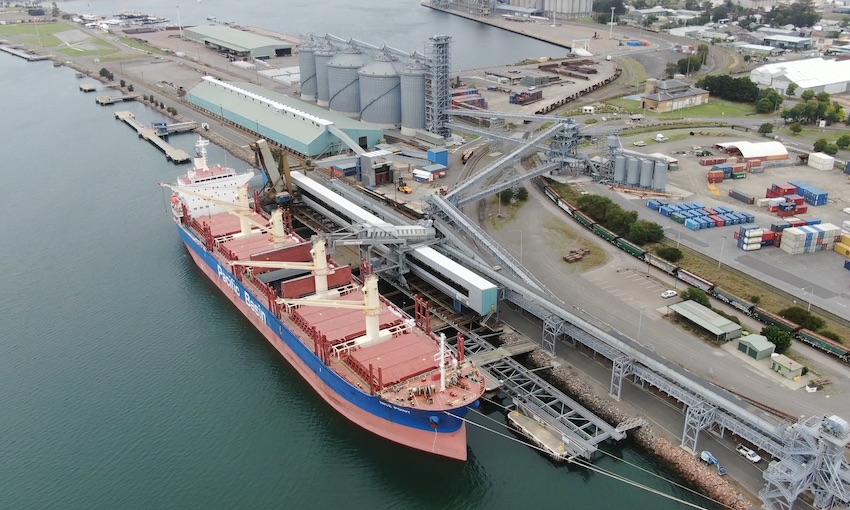THE Australian Competition and Consumer Commission will not presently pursue enforcement action in relation to Qube’s acquisition of the Newcastle Agri Terminal (NAT).
However, the ACCC said it remains “concerned with potential impacts on the supply chain for bulk grain export through the Port of Newcastle”, so it will continue to monitor developments in the industry.
Qube completed its acquisition of NAT on 30 September 2021 before the ACCC was able to properly consider and review the transaction. This lead the ACCC to launch an investigation in October into whether the acquisition was likely to substantially lessen competition in breach of merger law.
Under the Competition and Consumer Act, the ACCC can seek court-ordered divestiture of shares or assets acquired in breach of the merger provisions for a period of three years after completion of a transaction and can seek penalty orders for a period of six years.
ACCC Commissioner Stephen Ridgeway said: “While we have decided not to take court action at this time, it is extremely disappointing to see parties complete an acquisition such as this without allowing enough time for appropriate regulatory review”.
Qube is Australia’s largest provider of import and export logistics services, including ports, bulk material handling, logistics and property services. It also owns 50% of Australia’s largest container stevedore, Patrick Terminals.
The NAT is one of two bulk grain terminals located at the Port of Newcastle. Qube also operates the Quattro Terminal, one of two bulk grain terminals located at the Port Kembla.
“Based on our investigation, if Qube limits deliveries from rival rail services, it will likely lose volume and revenue from its terminal. Any benefit to Qube’s rail haulage business would likely be outweighed by the volume and revenue that would shift from the NAT to GrainCorp’s terminal,” Mr Ridgeway said.
“Under current market conditions, we do not consider Qube is likely to have an incentive to discriminate against rival rail haulage services accessing the NAT and the transaction is therefore unlikely to substantially lessen competition. Feedback from market participants is that operations at the NAT have not changed since Qube’s acquisition. However, we will continue to monitor the situation.”
The ACCC also considered the likelihood of anti-competitive effects in other markets if, following the acquisition of NAT, Qube offered grain traders a bundled service combining any of its up-country wheat storage, rail haulage and terminal services at NAT.
“GrainCorp also has a major terminal at the Port of Newcastle which limits Qube’s ability to use the NAT as a basis for engaging in anti-competitive bundling. Qube currently also has limited volumes and market share in both up-country storage and rail haulage, which reduce the likelihood that bundling would impede Qube’s competitors’ ability to compete in those markets,” Mr Ridgeway said.
“Based on current market conditions, our view at this stage is that it is unlikely that a Qube bundled offering would have an anti-competitive effect.”
“However, the ACCC is conscious that market conditions can change quickly, and we will continue to keep an eye on any bundling and its effects,” Mr Ridgeway said.
The ACCC also considered whether there may be competition lost between the NAT and Qube’s Quattro Terminal but concluded that this was not significant.
Market feedback suggests the NAT does not overlap significantly with Qube’s Quattro Terminal at Port Kembla. Each terminal exists in a separate draw zone, which is determined by the relative distance and price of transporting grain from up-country sites to the port for export.





